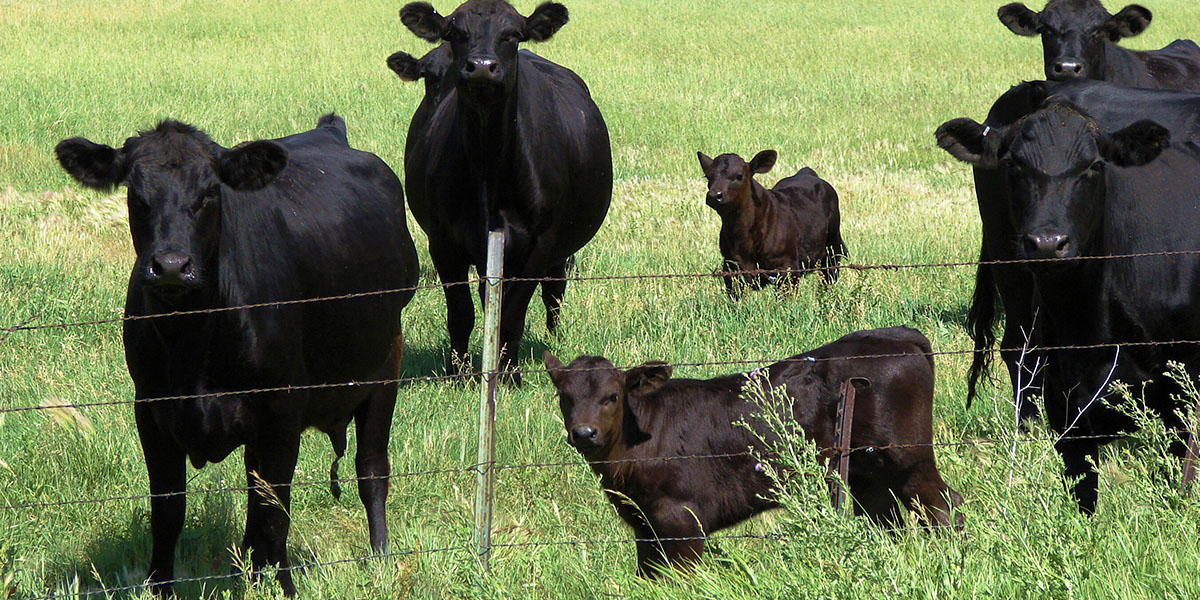Administering vaccines is a standard and routine procedure on cattle operations, whether it be beef cattle, dairy cattle, replacement heifers or beef calves. Cattle producers often think of vaccination as the physical act of administering the vaccine, but it’s how an animal’s immune system reacts to that vaccine that matters most. The animal’s response to the vaccination is called immunization, and that’s our overall goal.
The purpose of vaccines is to expose the animal to the same germs that cause the disease, either in a killed or weakened state, and enable the animal to begin building immunity against future exposure. Once a vaccine has been administered, either in the nose or under the skin of an animal, the vaccine particles; the antigens, such as IBR; should stimulate the animal’s immune system to produce antibodies to that specific vaccine particle. Antibodies play a key role in long-term immunity to some diseases. If in the future, an animal becomes infected with a disease for which they have been vaccinated, memory cells within the immune system remember that disease and produce antibodies when these cells multiply and divide.
How Antibodies Fight Off Infection
When an animal becomes infected with an intestinal disease, antibodies move from the blood to the intestinal wall and, finally, into the intestinal lumen. These antibodies attach to the disease-causing bacteria or virus and will either carry it out in the feces or carry the germ to the lymph node for processing, killing and removal from the body.
However, antibodies in other areas of the body work differently. For example, antibodies working in the lung tissue will attach to the bacteria or virus and will help mark it for destruction by other cells or, just like in the intestine, may carry it to the lymph node for processing.
Antibodies Provide Long-Term or Short-Term Immunity
Some antibodies will remain in the animal’s system for a few months, while others will remain in the system for years, providing long-term protection against those infections. Tetanus is one example of an antigen that stimulates the immune system well. The immune system will remember tetanus and the memory cells for a long time.
Other pathogens, such as a coronavirus, do not stimulate the immune system as well and, therefore, do not produce antibodies that will remain in the immune system for very long. Some animals and some humans do not recognize these infections well, because the virus is able to hide from the immune system. The virus continues to multiply and leads to massive numbers of virus particles in the patient while the animal or human has not recognized that they are infected. This ultimately leads to poor stimulation of the long-term memory cells and poor antibody production. This is the reason that some vaccines are administered annually, while others are administered much less frequently.
Performance Trace Minerals Improve the Immune System Response
All these processes within the immune system require energy, protein and trace minerals such as copper, zinc, manganese and selenium. These trace minerals are involved in many different enzyme systems in the immune system.
Zinc works as an antiviral agent by inhibiting RNA-dependent RNA polymerase (RdRP) – an enzyme that causes the replication of RNA viruses, like the coronavirus and many others that are known to affect livestock and poultry. Additionally, selenium works as an antioxidant, which reduces oxidative stress and improves the abilities of neutrophils and lymphocytes to identify and clear viral infections.
Copper also helps relieve oxidative stress, stimulates T-cell proliferation and helps to produce antibodies and to kill cells that have been infected by viruses. Manganese plays a role in mucin production, which helps prevent pathogens from entering the body in the first place.
An animal’s immune response to infections and to vaccines is highly dependent on these trace minerals, but not all trace minerals are created equal. Contact your Zinpro representative to ensure that you are giving your animals their best chance to maximize vaccine response and fend off virus threats.

